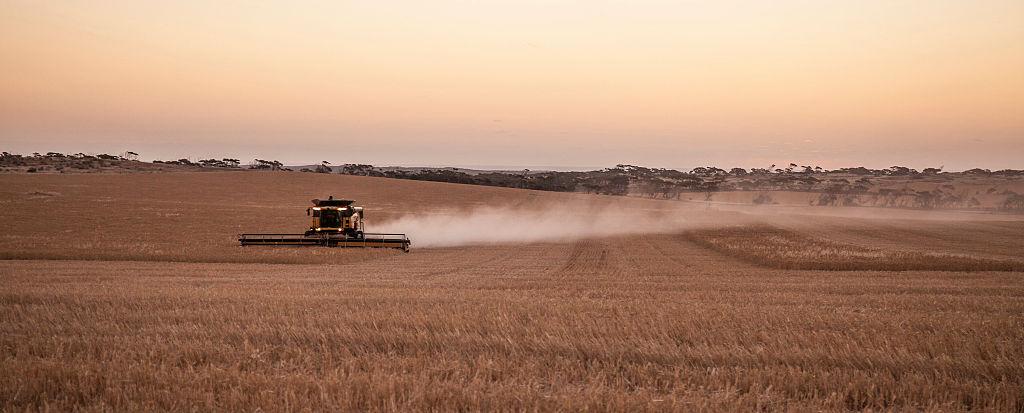Australia’s future must be made in global supply chains
Posted By Ian Satchwell on May 9, 2024 @ 16:53

Economists hate it, and nationalists yearning for the Australia of yore love it. The Albanese government’s A Future Made in Australia policy will need to be understood with a bit more nuance than its name implies.
The address to the Lowy Institute [1] by Treasuer Jim Chalmers on 1 May injected some reality into the policy. His contribution was this: we can’t do everything at home; we still must work with other countries in making things, doing our bit where we have a comparative advantage.
‘A Future Made in Australia doesn’t mean a future made alone,’ Chalmers said. ‘It will take an outward focus on securing our own supply chains and plugging into our region’s supply chains.’ More than 70 percent of Australia’s traded products were made as part of supply chains involving multiple countries, the treasurer added.
Our goods and services trade is equivalent to half of our gross domestic product, making Australia much more trade-exposed than, say, the United States.
Although their name makes them sound linear, global supply chains are actually multi-nodal networks in which the stages of production of goods and services are interlinked in many directions across borders. Any Australian industry, including manufacturing, depends on other nations as sources of inputs and as destinations for outputs: raw materials, business services, intermediate products and final goods and services.
As Chalmers highlighted, it is routine for many nations to supply the inputs for any one final product. Complex manufactures are no longer delivered from raw materials to finished products in one country, even though they are finally assembled in one location. The Department of Foreign Affairs and Trade demonstrated this in 2015 by showing that 16 suppliers from eight countries contributed to production of an Australian passport.
It’s not just physical things. Knowledge-intensive services are also key components of global value chains. Manufactured products contain high levels of embedded services, from design to installation and through-life support. Builders of commercial aircraft engines, for example, monitor the performance of their products in real time as the turbofans produce thrust in flight.
Australia’s most recent trade and investment agreements [2] recognise the trend to global value chains, which enable countries to specialise in areas of comparative advantage and work with others to achieve what no one nation could do efficiently on its own. Indonesia termed this process ‘powerhousing’ when signing the Indonesia-Australia Comprehensive Economic Partnership Agreement [3]. The agreement promotes collaboration between Australian and Indonesian companies along value chains.
An old example is the growing of grain in Western Australia, its milling into flour [4] in Indonesia and three other countries in Southeast Asia then transformation into malt and noodles that are exported to the world. Australia and Indonesia have pledged to work together across the electric vehicle value chain [5], supporting the production of minerals, battery chemicals and components variously in the two countries and leading to assembly of electric vehicles in Indonesia.
Commitments by Australia and like-minded partners to develop secure and sustainable critical minerals supply chains [6] highlight the important role of Australia both as one of the world’s largest suppliers and, through its companies, one of the world’s largest investors in exploration and mining across all inhabited continents.
Australia’s task and opportunity extend well beyond simply mining and processing its own critical minerals and supplying them to customers. Australia has an integral role in global supply chains. It is a destination for minerals investment and a major source of investment elsewhere. It is involved in exploring, mining and processing minerals at home and also in other countries. It should work with other countries to ensure supply chains are secure and sustainable and that markets price in the cost of responsible mineral production. And Australia is a destination and source of manufactures that use critical minerals.
The government justified the new made-in-Australia policy as a necessary response to economic and national security imperatives. Chalmers said the choice was a binary one [7] between ‘nostalgists and strategists’, the former evidently wanting to cling to free markets and the latter thinking more about security.
To some degree there is no choice: A Future Made in Australia must be focused on the kind of supply chain collaboration in which our nation creates and adds value where it has advantages.
Article printed from The Strategist: https://aspistrategist.ru
URL to article: /australias-future-must-be-made-in-global-supply-chains/
URLs in this post:
[1] address to the Lowy Institute: https://www.lowyinstitute.org/event/address-hon-dr-jim-chalmers-mp-treasurer-australia
[2] trade and investment agreements: https://www.dfat.gov.au/trade/agreements/in-force
[3] Indonesia-Australia Comprehensive Economic Partnership Agreement: https://www.dfat.gov.au/trade/agreements/in-force/iacepa/indonesia-australia-comprehensive-economic-partnership-agreement
[4] milling into flour: https://www.cbh.com.au/our-co-operative/what-we-do
[5] electric vehicle value chain: https://perthusasia.edu.au/research-insights/new-partnership-opportunities-for-indonesia-and-australia-batteries-and-electric-vehicles/
[6] develop secure and sustainable critical minerals supply chains: https://www.aspistrategist.ru/report/reclaiming-leadership-australia-and-global-critical-minerals-race
[7] choice was a binary one: https://www.lowyinstitute.org/the-interpreter/economic-diplomacy-it-s-nostalgists-vs-strategists
Click here to print.